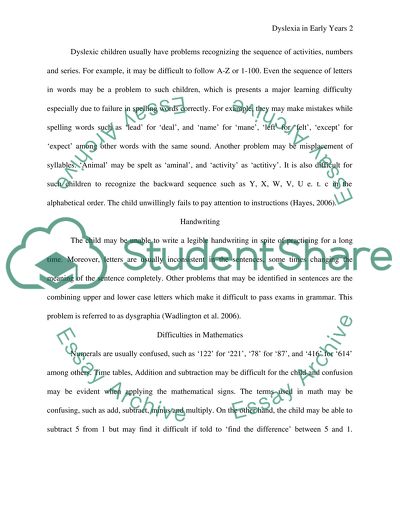Cite this document
(“Dyslexia In Early Years Essay Example | Topics and Well Written Essays - 1250 words”, n.d.)
Retrieved from https://studentshare.org/education/1564198-dyslexia-in-early-years
Retrieved from https://studentshare.org/education/1564198-dyslexia-in-early-years
(Dyslexia In Early Years Essay Example | Topics and Well Written Essays - 1250 Words)
https://studentshare.org/education/1564198-dyslexia-in-early-years.
https://studentshare.org/education/1564198-dyslexia-in-early-years.
“Dyslexia In Early Years Essay Example | Topics and Well Written Essays - 1250 Words”, n.d. https://studentshare.org/education/1564198-dyslexia-in-early-years.


